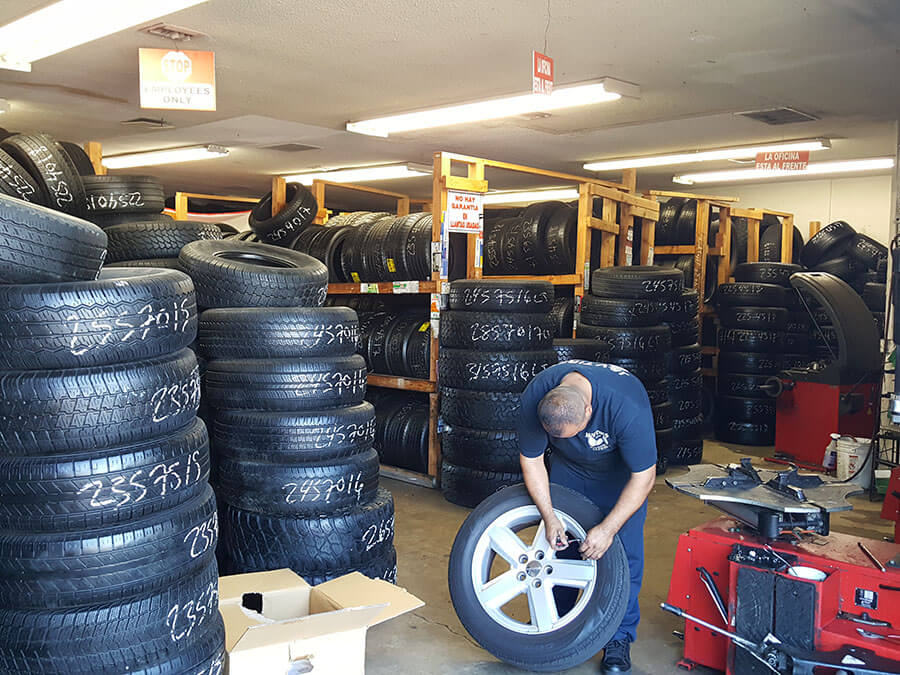Discover Top-Quality Tires Morris IL: Select the very best for Your Car
Discover Top-Quality Tires Morris IL: Select the very best for Your Car
Blog Article
Tire Solution: Recognizing Tire Stress Tracking Solutions
Comprehending Tire Stress Monitoring Systems (TPMS) is a vital facet of preserving ideal vehicle efficiency and security on the road. With improvements in auto technology, TPMS has become a conventional attribute in modern-day vehicles, giving real-time information on tire pressure degrees. Delving deeper into the complexities of TPMS, one can uncover the various elements that compose this system and the relevance of each in guaranteeing exact tracking. From straight to indirect TPMS systems, the landscape of tire pressure surveillance is diverse, each with its one-of-a-kind set of benefits and factors to consider. Keep tuned to unwind the complexities of TPMS, from upkeep tips to the undeniable benefits of maintaining your tires correctly blew up. tires morris il.

Importance of TPMS
The significance of Tire Pressure Monitoring Systems (TPMS) depends on their ability to boost car security and performance via real-time tracking of tire pressure degrees. Maintaining the right tire stress is crucial for making sure ideal handling, stopping, and total safety of a vehicle. TPMS gives vehicle drivers with instant responses on any overinflated or underinflated tires, enabling for timely changes to be made.
Elements of TPMS
Sensors are typically situated in the tire valve stem or connected to the wheel setting up, where they gauge tire pressure and transfer information to the control component. Some progressed TPMS models additionally display the real tire stress analyses for each tire, supplying motorists with real-time info to ensure ideal tire efficiency and security. By keeping an eye on tire pressure constantly, TPMS assists stop accidents, minimizes tire wear, and enhances gas efficiency, making it an essential component for lorry security and efficiency. mopar tire service specials.
Types of TPMS

On the various other hand, indirect TPMS relies upon the vehicle's wheel rate sensing units to keep an eye on tire pressure. This system identifies underinflation by comparing the rotational speeds of the wheels. Indirect TPMS is much less pricey than straight TPMS, as it makes use of existing sensors within the automobile.
While straight TPMS supplies more exact analyses, indirect TPMS is less complex in layout and generally calls for much less maintenance. Both systems have their benefits and limitations, and the choice in between them frequently depends on factors such as expense, vehicle make, and individual choice. Recognizing the distinctions between these 2 sorts of TPMS can aid automobile proprietors make notified decisions relating to tire upkeep and safety.
TPMS Maintenance Tips
Efficient upkeep of TPMS is necessary for making sure optimal efficiency and security of your vehicle. Regularly examining the TPMS sensors for any damage or deterioration is vital. Ensure that the sensing units are tidy and free from particles that could hinder their functioning. In addition, it is advisable to examine the sensor batteries periodically and replace them as needed to assure precise readings. Conduct routine checks on the tire stress levels and contrast them with the TPMS readings to guarantee they are constant. Recalibrate the system following the maker's standards if there are any type of discrepancies. Additionally, throughout tire rotation or replacement, ensure that the TPMS elements are managed carefully to avoid any kind of possible damage. Lastly, if the TPMS cautioning light illuminates on the control panel, attend to the concern immediately by inspecting the tire stress and the overall system for any type of faults. By adhering to these upkeep ideas, you can lengthen the life-span of your TPMS and boost the security of your driving experience.
Advantages of Correct Tire Stress
Preserving proper tire pressure, as emphasized in TPMS Upkeep Tips, is important for enjoying the many advantages linked with optimal tire stress degrees. One of the main benefits of preserving the correct tire stress is boosted fuel effectiveness. When tires are properly pumped up, there is less moving resistance, leading to much better fuel economic climate. Furthermore, appropriate tire pressure guarantees even tire wear, extending the lifespan of the tires and advertising safer driving conditions. With the ideal tire pressure, cars likewise have much better handling and traction, find out this here especially in adverse weather. This can enhance total driving efficiency and safety for the driver and guests. Moreover, preserving optimal tire stress can add to a smoother and a lot more comfortable trip by reducing vibrations and noise caused by underinflated tires. In final thought, the advantages of correct tire pressure exceed just tire long life; they encompass improved fuel performance, improved safety and security, far better automobile performance, and general driving comfort.
Verdict
To conclude, recognizing tire pressure surveillance systems (TPMS) is important for preserving optimal tire pressure and ensuring vehicle security. official statement By acknowledging the value of TPMS, knowing with its elements, understanding the different types offered, adhering to correct maintenance ideas, and recognizing the benefits of keeping proper tire stress, drivers can enhance their driving experience and prolong the life expectancy of their tires. Proper tire stress is key to reliable and secure lorry operation.

Report this page